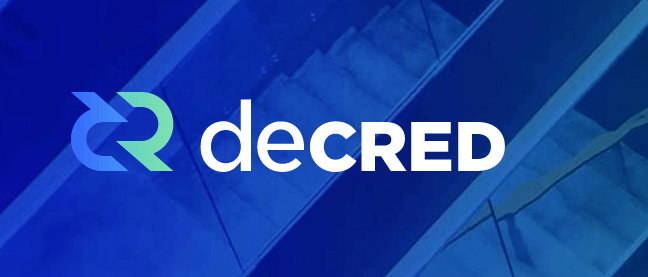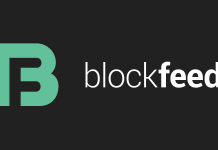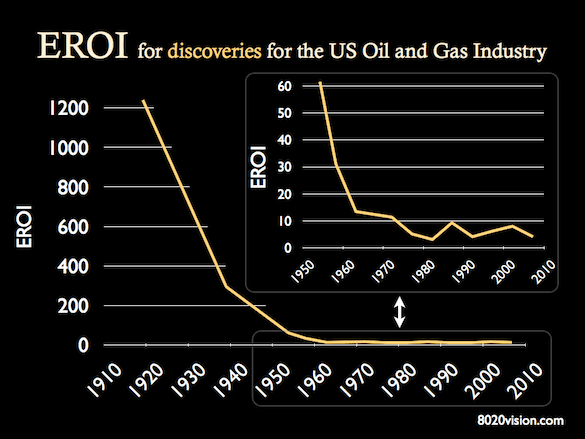An interview with Dave Collins and Justin Fainges from the Decred team.
What is the main news from Decred in the last 6 months?
Development has continued at a rapid pace in the last six months. A number of new features have been added and we’ve more than doubled the number of community contractors who are working on Decred. We’ve had the first hard fork vote to implement a new Proof-of-Stake algorithm and we’re currently in the middle of a vote to activate code that will form the basis of an off-chain Lightning Network for nearly instant micro-transactions.
We’ve also implemented and demonstrated the first cross-chain atomic swap with Litecoin that allows two users to trade different currencies without needing and exchange or other trusted third party. Some other new features include dcrtime; a free public timestamping application that runs on the Decred network and provides immutable evidence of a event occurring at a certain time. Work on simplified wallets is ongoing and Decred is now easier to use than ever before.
We are also working on
- A public proposal system is being developed to facilitate the submission and vetting of new ideas.
- A decentralised Development fund,
- Enhanced privacy features so that transactions will not be traceable
- Payment integration support to make it easier for businesses to use Decred.
- More information https://blog.Decred.org/2017/
08/02/2017-Roadmap-Update-1/

Going back to the fundamentals, where does Decred position itself within the Cryptosphere. What does it bring that is unique today or will be unique in the future and make this coin a powerful financial force?
I think the thing that separates Decred from all other coins is the focus on the long game. It was built from the ground up to be a solid, extensible, flexible currency that can adapt to meet the needs of not just today, but 5, 10 even 50 years in the future. The very name says it; Decentralized Credit. Have a look at the top coins today, they’re actually very centralized. Bitcoin is controlled by a small number of mining firms and there’s a small team that looks after its development. Even something as small as raising the block size limit took years and resulted in a split of the coin. In fact, Ethereum, the second largest cryptocurrency came into existence because the Bitcoin developers wouldn’t entertain his idea. When a rumour went around that the founder of Ethereum had died, the price plummeted briefly because at the end of the day he is the one who controls the direction of the currency.
Decred gets around this centralization of power by a voting system that means that any major changes, even by the founders themselves, have to be approved by stakeholders in the Proof-of-Stake system. Once the work on the Decentralized Autonomous Organization (not to be confused with The DAO from Ethereum) goes live, even the disbursement of development funds will be controlled by the users.
Decred doesn’t have problems with miners blocking upgrades or inflated egos knocking back good ideas because they weren’t theirs. All disputes are handled on the chain itself and the result is visible to all. If someone has an idea, they can raise a proposal. If they can get enough support for it, they can build it and a vote will be held to activate the idea with them being paid for the work. Because a fraction (10% of each block reward) is set aside for development, Decred is self-funding so we have no need for external funding such as an ICO. For investors, that’s also a good thing as we won’t fall afoul of the SECs new rules regarding ICOs.
In summary, Decred is a democratic currency with a view to long term stability and has the flexibility and resources to ensure it remains relevant far in the future. Its aim is to be a better Bitcoin than Bitcoin.
What is Decred staking?
I’ve mentioned Proof-of-Stake and stakeholders above and this is the system that is at the heart of Decred. Along with the Proof-of-Work system that you’ll be familiar with from Bitcoin, Decred also secures transactions with a Proof-of-Stake or PoS system.
Users who wish to participate in PoS buy tickets and every block, 5 tickets are chosen to vote. First, they vote on the validity of the previous block (e.g., they might reject empty blocks or blocks with an old version) and second, they vote on any features or changes that people want to be made to the network. For example, the block size debate in Bitcoin. It took them a few years to get to the point where they had the code ready and when it was released not everyone supported it so Bitcoin forked and a new currency was created; Bitcoin Cash. The same thing is happening right now. Some people want to change the Proof-of-Work algorithm and so they need to create yet another fork, Bitcoin Gold.
These all become new currencies that are not compatible with each other. In Decred, you code your proposal straight into the live network. A vote is held to decide if people want it. If they do, the code is automatically activated, if not, it stays dormant. The whole process takes about two months.
In order to incentivize participation in PoS, part of the block reward goes to the stakeholder when one of their tickets is chosen to vote.
What is a ticket?
A single ticket gives a stakeholder one vote in the PoS system. There is a ticket pool with a  target size of 40960 tickets. The price of a ticket changes depending on how far above or below that number the actual pool size is.
target size of 40960 tickets. The price of a ticket changes depending on how far above or below that number the actual pool size is.
Currently the cost of a ticket is about 70DCR and you can buy as many as you want. This cost is refunded when a ticket votes or expires, and there is no situation in which the ticket price will not be refunded; the user will always get it back. A ticket expires if it has not been called to vote within about 5 months, but the change of this is about 1 in 200. On average, a ticket will vote in 28 days.
Once ticket votes, the ticket price is returned, along with the PoS reward which is about 1.4DCR at the time of writing. As such, the current return is about 2% per month. While PoS is not strictly an investment vehicle, I don’t know of any other investment with this sort of risk/return ratio.
What is Decred pooled staking?
In order to vote, a wallet needs to be online 24/7 since there’s no way of knowing when a given ticket will be called. Many people don’t want to or can’t leave a computer on and connected all the time, so stake pools allow users to participate in PoS without needing a constant connection.
Do users lose control over their coins or their tickets when they participate in a stake pool?
No, users keep control of their coins at all times. When using a pool, all you are doing is delegating voting rights to the pool, NOT tickets or funds. PoS pools are secure for the simple fact that they hold no funds whatsoever. The worst that would happen if a pool went offline is that any tickets would miss their vote which means the user would not get their vote reward (but they would get the price paid back).
What do users lose when they participate in a stake pool?
The only thing they lose is a small percentage of the reward that is paid to the pool owner to help with upkeep. There are no security risks since the pool does not have control of or access to your funds.
What do the users gain when they participate in a stake pool?
The ability to participate in PoS without having to keep a wallet online 24/7. Stake pools are purely a convenience service. They do not provide any advantages in regards to voting chance or reward returns, and they do not aggregate and distribute rewards like Proof-of-Work pools do.
What are the different Decred staking pools currently on the market? What is the incentive of these pools to operate?
All the officially recognized stake pools are listed right at the bottom of Decred.org. The pools charge a small percentage of the ticket return (not the price) to fund their operations.
What are the differences that investors should look out for between these Decred staking pools?
The stake pools all run the same code so aren’t that much different. They’re all vetted by the development team before being added as official. I would suggest looking for one that has a lower percentage of missed tickets as that usually means they have more voting wallet distribution and so tend to be more reliable. Many missed votes are caused by the PoW miners though, so the number of missed votes is not necessarily a reflection on the quality of the pool.
development team before being added as official. I would suggest looking for one that has a lower percentage of missed tickets as that usually means they have more voting wallet distribution and so tend to be more reliable. Many missed votes are caused by the PoW miners though, so the number of missed votes is not necessarily a reflection on the quality of the pool.
What changes are you looking forward to within Decred in the next 6 months?
More than I can list here really. I’m really looking forward to the release of the Lightning Network. Super fast off-chain transactions will open up Decred to a wider range of applications. I hope to soon be able to buy de coffee with Decred… Privacy features to allow for anonymous transactions, hardware wallets, an ever-expanding list of atomic swap compatible currencies and further down the road, possibly even a scripting platform.
How can our readers become more involved with Decred?
First, visit our website at Decred.org to learn more about the project. Any questions will be answered by our helpful community on Reddit, Slack, Twitter or our forum, all of which are linked at the bottom of our site. Finally, jump into PoS and start earning 2% per month on your investment by purchasing Decred from any of the major exchanges. You can also buy direct with USD at changelly.com or Euro at www.litebit.eu. I suggest now is a good time to buy as the price is low due to the upcoming Bitcoin Gold fork.
We thank Dave Collins and Justin Fainges for the interview.<











